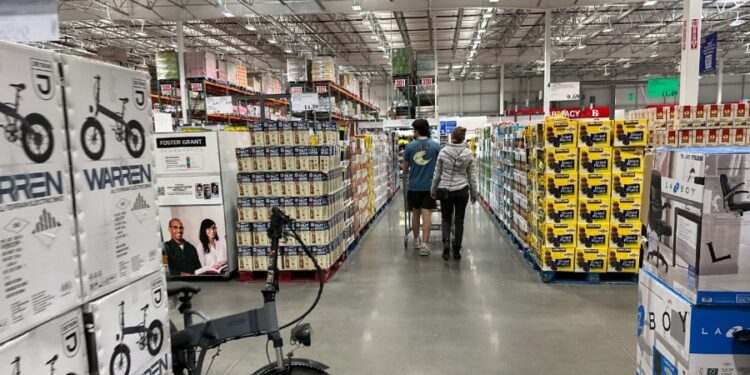
Retail and food sales made their largest monthly drop in January since March 2023, marking an end to the buying surge that took off in the run-up to the 2024 election.
Sales fell by 0.9 percent to a seasonally adjusted $724 billion from $730 billion in December, the Census Bureau reported Friday.
Economists were predicting sales to fall by around 0.2 percent off holiday highs, so the 0.9-percent drop comes in well below expectations.
Economists called the January numbers disappointing but said they weren’t too concerned about the shortfall. Sales for the past 12 months were up 4.2 percent compared to January, 2024, beating the rate of inflation, which climbed to 3 percent in January.
“Retail Sales disappointed estimates but following several strong months of data, today’s release is no reason for concern,” Lauren Seidel-Baker, economist with research firm ITR Economics, wrote in a commentary. “Inflation remains in a generally disinflationary pattern, while the consumer is still healthy. Overall wage inflation still outpaces Consumer Price Inflation, keeping the consumer in a position to spend.”
Sales were revised up between November 2024 and December 2024, increasing to a 0.7 percent increase from a 0.4 percent increase over that period, the Census Bureau reported.
Motor vehicle sales were a main drag on the January sale number, dropping by 2.8 percent, the biggest drop in seven months. Sporting goods, musical instruments and other hobbyist equipment dropped by 4.6 percent on the month.
“The weakness was broad-based across retailers,” EY economist Lydia Boussour wrote in an analysis. “Looking ahead, the combination of moderating inflation, resilient labor market trends, and strong momentum at the end of 2024 should still put a floor under consumption growth in [the first quarter].”
Retail sales had been climbing at a solid pace, rising nearly 3 percent in total volumes from a seasonally adjusted $710 billion in August to $730 billion in December.
Multiple economists noted that the pullback in sales may be related to policy uncertainties that swirled around the election and had businesses pull up their ordering schedules, notably President Trump’s proposed tariffs, which have been announced and pulled back in fits and starts since he took office.
“Front-running tariffs likely contributed to some amount of retail spending pull forward from early 2025,” Seidel-Baker noted.
Personal consumption declined between November and December, falling slightly from a 5.75-percent increase to a 5.69-percent increase, according to recent Commerce Department data.







